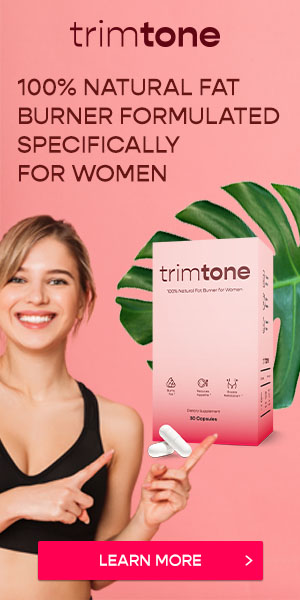In an era dominated by wellness influencers and social media, nutrition trends come and go with dizzying speed. From intermittent fasting to plant-based diets and the latest superfood supplements, it can be challenging to discern which trends are rooted in solid science and which are mere fads. This article aims to explore some of the most popular nutrition trends, providing clarity on their efficacy, potential benefits, and possible pitfalls.
The Appeal of Nutrition Trends
Nutrition trends often gain popularity due to their promise of quick fixes and transformative health benefits. Whether touted for weight loss, improved energy levels, or disease prevention, these trends capture the attention of individuals seeking to optimize their diet and overall well-being.
Plant-Based Diets: More than a Trend?
Plant-based diets, characterized by a focus on fruits, vegetables, grains, and legumes while minimizing or eliminating animal products, have surged in popularity. Proponents claim benefits ranging from lower risk of chronic diseases like heart disease and diabetes to reduced environmental impact. Research supports many of these claims, showing that well-planned plant-based diets can indeed promote health and longevity.
However, nutrition experts caution that not all plant-based diets are created equal. “It’s crucial to ensure adequate intake of essential nutrients such as protein, vitamin B12, iron, and omega-3 fatty acids,” advises Dr. Sarah Lee, a registered dietitian. “Careful planning is essential to avoid deficiencies that can arise from exclusively plant-based eating.”
Intermittent Fasting: A Flexible Approach to Eating
Intermittent fasting has garnered attention for its potential benefits in weight management and metabolic health. This eating pattern involves cycling between periods of eating and fasting, with popular methods including the 16/8 method (16 hours of fasting, 8 hours of eating) and the 5:2 diet (regular eating for five days, restricted calories for two days).
Studies suggest that intermittent fasting may aid weight loss and improve markers of metabolic health, such as insulin sensitivity and cholesterol levels. However, it may not be suitable for everyone, especially those with certain medical conditions or specific nutritional needs. Consulting with a healthcare professional before starting an intermittent fasting regimen is advisable.
The Role of Supplements: Bridging Nutritional Gaps?
Supplements continue to flood the market, promising everything from enhanced immunity to improved cognitive function. While some supplements, like vitamin D for bone health or omega-3 fatty acids for heart health, have robust scientific backing, others may lack sufficient evidence to support their claims.
Dr. Michael Wong, a pharmacist specializing in nutritional supplements, advises consumers to approach supplements with caution. “Supplements should complement, not replace, a balanced diet,” he emphasizes. “Always look for products that are tested for quality and safety by reputable third-party organizations.”
Navigating the Noise: Making Informed Choices
Amidst the noise of nutrition trends, making informed choices begins with critical thinking and evidence-based research. It’s essential to evaluate claims with skepticism, seek advice from qualified healthcare professionals or registered dietitians, and consider individual health goals and preferences when adopting dietary changes.
“Personalization is key,” says nutritionist Julia Martinez. “What works for one person may not work for another. Tailoring nutrition choices to individual needs and preferences ensures sustainable and effective outcomes.”
Sustainability and Long-Term Health
Beyond immediate health benefits, sustainability is a crucial consideration in evaluating nutrition trends. “A diet’s sustainability is just as important as its nutritional quality,” remarks environmental scientist Dr. John Reynolds. “Choosing diets that are both health-promoting and environmentally sustainable can have positive impacts on personal health and the planet.”
The Influence of Marketing and Media
The rise of social media and digital marketing has amplified the reach of nutrition trends, often blurring the lines between evidence-based information and promotional hype. Wellness influencers and celebrities frequently endorse products and diets, shaping public perception and driving consumer choices.
Dr. Rebecca Taylor, a nutrition researcher, emphasizes the importance of critical thinking. “Consumers should be wary of exaggerated claims and consider the source of information,” she advises. “Look for peer-reviewed studies and reputable sources to verify claims before making dietary changes.”
Conclusion
While nutrition trends may offer exciting possibilities for improving health and well-being, separating fact from fiction requires diligence and a discerning eye. By staying informed, consulting reliable sources, and prioritizing evidence-based practices, individuals can navigate the evolving landscape of nutrition trends with confidence.
Remember, the foundation of a healthy diet remains rooted in balanced, whole foods that provide essential nutrients for long-term health and vitality. As you explore nutrition trends, consider their impact on your health, lifestyle, and the broader environment to make informed choices that support your well-being for years to come.
If you want an effective appetite suppressant to control snacking consider using Trimtone supplements.
Trimtone is a safe and natural fat burner for women Burns fat 24/7 by stimulating thermogenesis, and It is Effective appetite suppressant to control snacking to use a day formula


